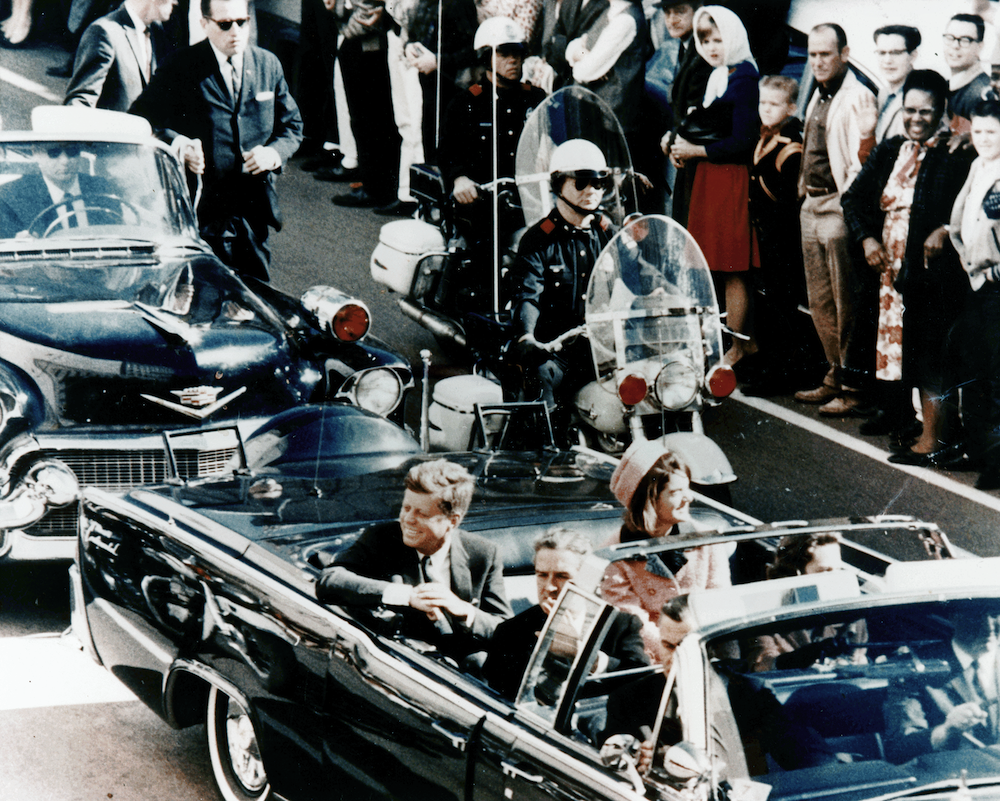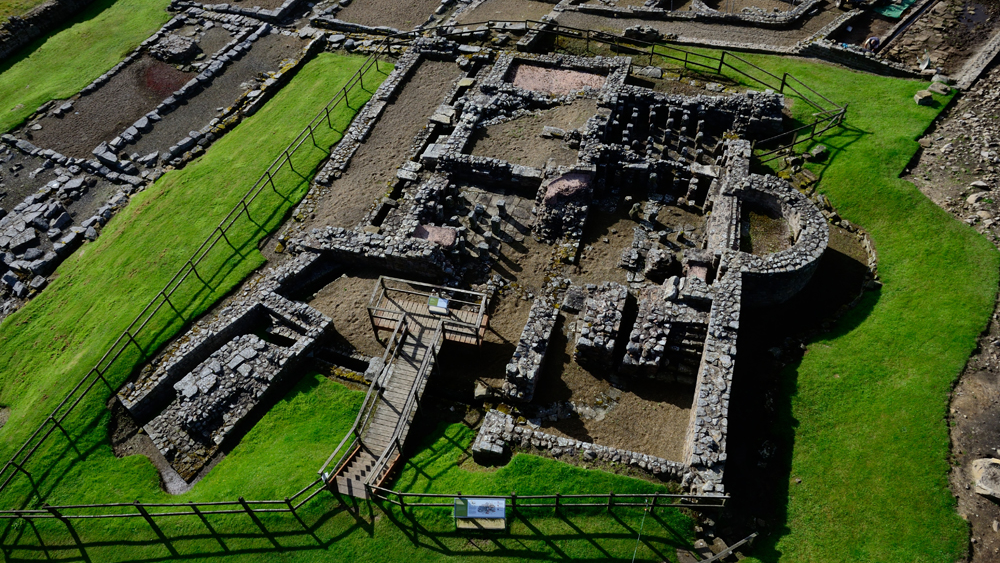
Friday (Nov. 22) marks the 50th anniversary of John F. Kennedy's assassination. That death stunned the world and caused an outpouring of public grief unprecedented in modern United States history.
Some even say that the killing of the 35th president altered the course of history, and that the United States would not have become embroiled in the Vietnam War had he lived.
But JFK isn't the only leader to have died by another's hands. He joins a long list of leaders who were murdered for political reasons. From the stabbing of Julius Caesar to the shooting of Mahatma Gandhi, here are eight of the most famous assassinations in history. [Which U.S. Leaders Have Been Assassinated?]
1. Roman tragedy
Et tu, Brute? Despite having lived more than 2,000 years ago, Julius Caesar remains one of the most famous leaders to have met a brutal end. The "dictator in perpetuity" of the Roman Empire died on the Ides of March in 44 B.C. Senators Brutus and Cassius led a gang of senators called the Liberators and stabbed the leader to death outside the Theater of Pompey. Their motive? They feared Caesar planned to do away with the Senate and create a dictatorship. Of course, once they got Caesar out of the way, they set up a tyrannical government themselves.
2. Honest Abe
Abraham Lincoln, hailed by many historians as America's greatest president, was at a high point in 1865 when he was murdered. He had ended slavery, preserved the Union through the Civil War, and was embarking on the long road to reconstruction. The president was attending a play at Ford's Theatre in Washington, D.C., when actor John Wilkes Booth slipped into the president's booth and shot him in the head on Good Friday, April 14, 1865. Booth then leapt onto the stage wielding a knife and said, "Sic semper tyrannis," or "thus always to tyrants," a famous line attributed to Brutus at Caesar's assassination. [Busted: 6 Civil War Myths]
Get the world’s most fascinating discoveries delivered straight to your inbox.
3. Nonviolent leader
Mohandas K. or "Mahatma" Gandhi led India's successful bid for independence from Great Britain from the 1920s to the 1940s. Instead of relying on a revolution, Gandhi used nonviolence to accomplish this feat. But on Jan. 30, 1948, Nathuram Godse, a Hindu nationalist who opposed Gandhi's nonviolent approach and perceived favoritism towards Muslims, fired three shots at the leader at the Birla House in New Delhi, killing him. Millions of people came to honor the leader in his funeral procession.
4. Civil rights giant
Martin Luther King Jr. was the superstar of the civil rights movement and, like Gandhi, relied on nonviolence and civil disobedience to push for desegregation, voting rights and other civil rights for African Americans. Despite King's steadfast commitment to nonviolence, his opponents, mostly Southern whites opposed to desegregation and enfranchisement for African-Americans, weren't so restrained. White supremacists orchestrated bombings, beatings and murders to maintain the status quo, and King eventually became one of the victims. He was shot on April 4, 1968, while standing on the balcony of the Lorraine Motel in Memphis, Tenn. Authorities convicted James Earl Ray, a racist petty criminal, for the assassination, but for decades, rumors have swirled that Ray was part of a government plot to kill King.
5. Ill-fated family
The Kennedy family has been dogged by tragedy for many generations. On Nov. 22, 1963, a sniper shot and killed John F. Kennedy as he was traveling with a motorcade in Dealey Plaza in Dallas, Texas. The Warren Commission concluded that Lee Harvey Oswald, a former Marine who had defected to the Soviet Union but returned to the United States, acted alone and fired the shots from the sixth floor of a nearby book depository. Many believe the official story is wrong, and 50 years later, conspiracy theories continue to circulate. [Why JFK Conspiracy Theories Won't Die]
Five years later, on June 5, 1968, JFK's younger brother Robert F. Kennedy was assassinated while campaigning for the presidency. He had just won the California presidential primary and was leaving the ballroom of the Ambassador Hotel in Los Angeles, when Sirhan Sirhan, a Palestinian Christian, opened fire and killed the presidential hopeful because of his support for Israel.
6. Music icon
Though most assassinations are political, some killings seem to have little political rationale. John Lennon, one of the world's most famous musicians and a former member of the Beatles, was entering his home at The Dakota in New York City when he was shot and killed by Mark David Chapman on Dec. 8, 1980. At his trial, Chapman initially planned to plead insanity but later changed his plea to guilty, saying it was the will of God.
7. Young duke
Archduke Franz Ferdinand, heir to the throne of the Austro-Hungarian Empire, wasn't exactly a well-loved personality, and was described by historians as suspicious, hysterical and unpopular. Still, he did accomplish one stunning feat: His death inadvertently launched the First World War. The duke was shot on June 28, 1914, in Sarajevo, Bosnia, by Gavrilo Princip, a member of a Yugoslav independence movement known as Young Bosnia and an assassin for The Black Hand, a secret society formed by members of the Serbian Army. Austria-Hungary believed the Serbian military was involved in the plot and issued an ultimatum, then invaded Serbia when part of the ultimatum was rejected. A tangle of political alliances then swept all the major world powers into the war, leading to millions of deaths.
8. Black power
Malcolm X was one of the most galvanizing political figures of the 1950s and 1960s. He grew up an orphan and spent time in prison, where he became a member of the Nation of Islam. He soon began promoting its ideas. Unlike Dr. King, Malcolm X rejected non-violence as a strategy and advocated for black separatism, saying African-Americans couldn't succeed in a racist society dominated by whites. But when Malcolm X fell out with the Nation of Islam leadership, he became a marked man. Three Nation of Islam members shot and killed the leader on Feb. 21, 1965, while he was giving a speech at the Audubon Ballroom in New York City.
Follow Tia Ghose on Twitter and Google+. Follow LiveScience @livescience, Facebook & Google+. Original article on LiveScience.

Tia is the editor-in-chief (premium) and was formerly managing editor and senior writer for Live Science. Her work has appeared in Scientific American, Wired.com, Science News and other outlets. She holds a master's degree in bioengineering from the University of Washington, a graduate certificate in science writing from UC Santa Cruz and a bachelor's degree in mechanical engineering from the University of Texas at Austin. Tia was part of a team at the Milwaukee Journal Sentinel that published the Empty Cradles series on preterm births, which won multiple awards, including the 2012 Casey Medal for Meritorious Journalism.


